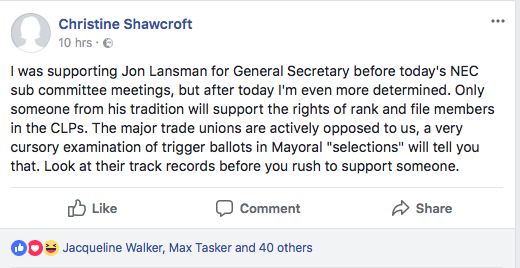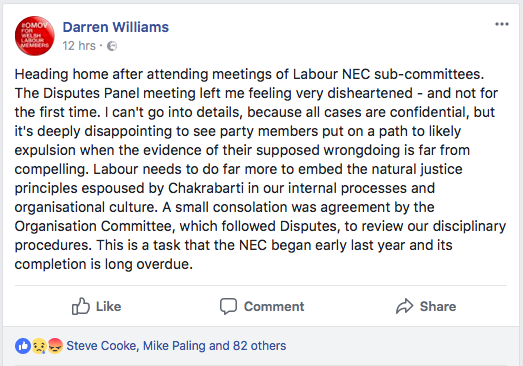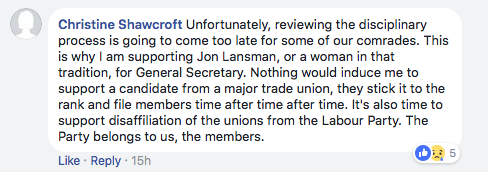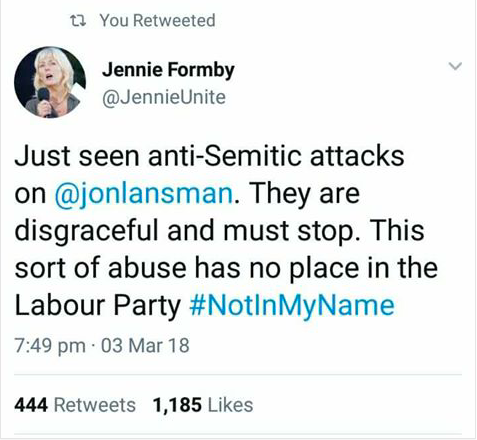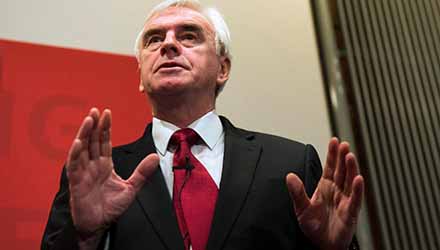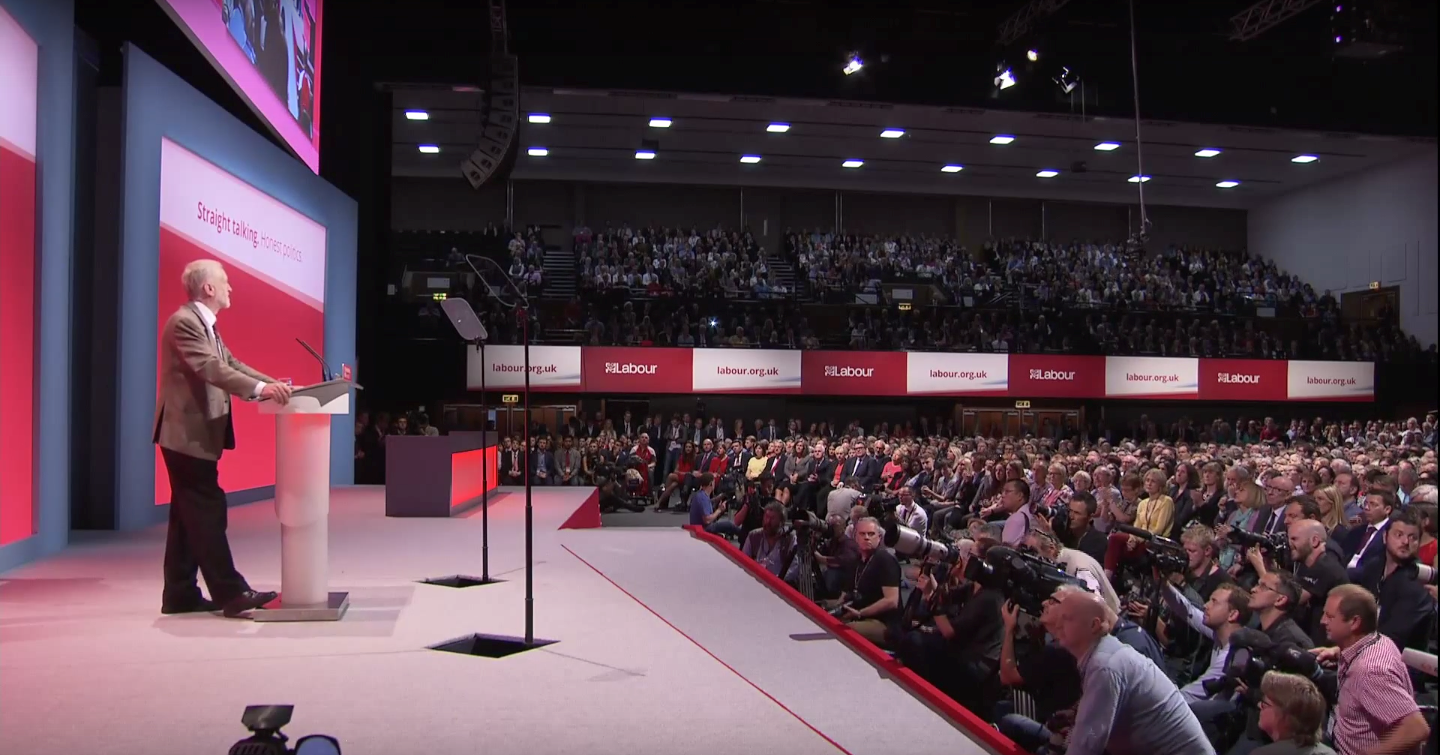Sir Keir bans Labour banners at Palestine demonstrations, Jeremy Corbyn appeals to ‘international law’, while the Campaign Group of Socialist MPs sticks to empty platitudes, reports Carla Roberts
A few short years ago, Labour Party conferences were awash with Palestine flags. In 2018 and 2019 in particular, there was a sea of hundreds of them, many handed out by Labour Against the Witchhunt. In both years, there were also motions passed that were highly critical of the Israeli government.[1]
Even in 2021 – when Sir Keir had already been in charge for over 16 months – a motion was passed that heavily criticised the “ongoing Nakba in Palestine”, “the deadly assault on Gaza” and the “de facto annexation of Palestinian land”. Furthermore, the motion contained this interesting formulation: “Conference also notes the unequivocal 2021 reports by B’Tselem and Human Rights Watch that conclude unequivocally that Israel is practising the crime of apartheid, as defined by the UN.”
Fast-forward two years. The Liverpool conference could not have been more different. In the run-up to the stage-managed event, Labour HQ unilaterally removed the words “end apartheid” from the title of a fringe event organised by the Palestine Solidarity Campaign, leaving the title ‘Justice for Palestine’ in the conference guide.[2] The PSC protested, but to no avail, and was eventually told that using the word “apartheid” – a formulation also used by that radical leftie group, the United Nations (!), to describe Israeli policy[3] – is now “detrimental to the party”.
As an aside, it depends, of course, on how you define ‘apartheid’. The situation in Palestine is entirely different from the former apartheid regime in South Africa, where a small white ruling class massively exploited the black population. Israel’s aim, however, is not exploitation – more like mass expulsion. It wants to ethnically cleanse the occupied territories and get rid of all Palestinians.
Funnily enough, among the speakers at the PSC event was former shadow chancellor John McDonnell, a keen defender of the policy of ‘zero tolerance’. He and Momentum founder Jon Lansman were the key people in Jeremy Corbyn’s team responsible for the disastrous tactic of trying to appease the right by apologising over and over again for the myriad of false and weaponised claims that the party was overrun by anti-Semites. The PSC meeting went ahead with the shortened title, but it would have been very ironic if McDonnell had become a victim of the anti-Semitism smear campaign after all.
It is, of course, not just Keir Starmer who has bent over backwards to the pro-Israel agenda of the establishment. Unite general secretary Sharon Graham allegedly tried to force the cancellation of a Unite Palestine solidarity conference fringe event. But, because she did not seem to have the guts to have her name attached to such an attack on free speech, the meeting went ahead unchallenged.[4]
Touching calls
After conference, Starmer and his enforcer, general secretary David Evans, turned up the heat some more. On October 11, Starmer stated that he backs Israel’s decision to cut water, food and medicine supplies to Gaza – “Israel has that right”, he repeatedly said, before ‘clarifying’ that, “obviously everything should be done within international law, but I don’t want to step away from the core principles that Israel has the right to defend herself”.[5] Well, you can’t have it both ways. Punishing a civilian population is clearly a war crime, as defined by the Geneva Convention. But international law is clearly very stretchy.
Jeremy Corbyn too has issued almost touching calls for “peace”, “moral principles” and for politicians to “defend international law universally and equally”.[6] He seems to believe in some form of neutral and just ‘international law’ that stands above all the squabbles in the world. If only it was enforced properly. No, Jeremy, just think about who has written ‘international law’ or indeed enforces it and to what purpose. The war against Iraq was entirely legal – they just made up a bunch of lies to make it just about acceptable at the time. The US government, the EU and virtually all western imperialist governments are unequivocally supporting Israel – and have been for decades. Why on earth appeal to such laws and organisations?
Then, on October 13, Labour general secretary David Evans sent an email to all constituency and branch secretaries warning that MPs, councillors and other representatives should not take part in any of the pro-Palestine demonstrations that were taking place the next day:
Elected representatives have been given strong advice not to attend any of these events, and I would urge you to exercise similar caution. Not only is this in the interests of our members’ safety, but also to avoid placing colleagues in a position where they may share a platform with, or are close to, individuals that threaten to undermine the values and principles of the Labour Party.
In the event that individual members are in attendance at these protests and demonstration, I ask that no Labour Party banners are taken along. Individuals will not have the ability to control who they will be photographed alongside, and this risks threatening the Labour Party’s ability to campaign against any form of racism and discrimination.
The email further outlines that “attempts to table motions at meetings that are prejudicial or grossly detrimental to the Labour Party and risk infringing the Labour Party’s Codes of Conduct on Anti-Semitism and Islamophobia” will, “consistent with previous precedent, be ruled out of order”.
And, just to make sure that nobody gets away with any such nonsense or has posted something online “detrimental to the party”, the email reminds the snitchers of just how to snitch: “If you or someone else considers that a Labour Party member has breached our rules, this should be reported to us here …”[7]
It was, of course, under the leadership of Jeremy Corbyn that such ‘guidance’ emails started to come in thick and fast. His general secretary, Jennie Formby, was so keen to be seen to implement the demands of the pro-Zionist lobby that she sent out numerous emails ‘advising’ members not to pass motions, for example, against the witch-hunt or in support of Chris Williamson, who was the only Labour MP who dared to stand up to the vicious campaign to conflate anti-Zionism with anti-Semitism. Overly eager branch and CLP secretaries and regional officers (most of them on the right, although there were not a few official ‘lefts’ among them) were only too happy to interpret the advice as outright ‘bans’. Labour Against the Witchhunt did a good job explaining the facts,[8] but many members were too scared to stand in solidarity with their smeared and vilified comrades. That was the point of it all, of course: self-censorship.
And, boy, does it work! It worked under Corbyn, when Labour left campaigns like the short-lived Don’t Leave, Organise and Howard Beckett’s even shorter-lived Labour Left for Socialism refused to associate publicly with anybody who had been expelled or suspended from the party. Needless to say, this policy helped to lead to their quick demise, especially after people like Beckett were themselves suspended.
And it continues to work now: I have not heard of a single Labour MP addressing any of the Palestine demonstrations around the country. They all seem to have toed the party line. A bunch of cowards the lot of them – especially the so-called Campaign Group of Socialist MPs. Their only effort so far has been an early day motion condemning Hamas and echoing calls for a humanitarian ceasefire. We know many of them are strong supporters of Palestine, but they probably feel even stronger about their own careers.
And, because the campaign to smear all criticism of Israel as anti-Semitic was so successful in the Labour movement, it quickly spread beyond it. It was not designed to get rid of Corbyn – that was just a very welcome side effect from the point of view of the Zionist lobby. The key aim was always to prepare for exactly the situation we are currently witnessing: Israel’s campaign of ethnic cleansing going into overdrive.
But the campaign in the Labour Party and the left’s appeasement certainly helped to prepare the ground for today, where critics of Israel can be gotten rid of in record time. Innocent until proven guilty? Forget it. Now the smallest whiff of alleged anti-Semitism (actually anti-Zionism) is enough to get people suspended, sacked, their livelihoods ruined.
Just in the last week, there have been dozens of examples that show how the right to free speech has been hollowed out in the attempt of the establishment to back Israel hook, line and sinker:
More victims
- Cartoonist Steve Bell has just lost his job at The Guardian. The paper confirmed that it “will not be renewing his contract” after he submitted what they claim is an anti-Semitic cartoon of Benjamin Netanyahu. It shows Israel’s leader operating on his own stomach with boxing gloves on: the cut is in the outline of the Gaza Strip. Bell says his artwork was inspired by a famous cartoon of David Levine showing US president Lyndon Johnson with an operation scar on his belly in the shape of Vietnam. The Guardian, however, does not believe him. Oversensitised like all bourgeois media outlets, it has taken the cartoon to be a reference to the Jewish moneylender, Shylock, in Shakespeare’s Merchant of Venice, who demands “a pound of flesh” of Antonio’s if a loan is not repaid within three months. That seems to be quite a stretch, to put it mildly.
- On October 16, former British ambassador and journalist Craig Murray was arrested at the airport by UK security forces under the Prevention of Terrorism Act, on his return from Iceland. His phone, laptop and other electronics were seized and he “doesn’t expect he will get them back”. He said he was questioned about his attendance at the Palestine demo in Iceland. He was also questioned about his involvement in the Assange campaign and “whether he is paid for such work”.[9] Inconvenient campaigners and journalists like Kit Klarenberg have similarly been detained in recent months.
- Ofcom has just suspended its online safety director, Fadzai Madzingira, after the vile website, Guido Fawkes, published screenshots from her private Instagram account, in which she called Israel an “apartheid state” and wrote: “As if it wasn’t bad enough already, the UK is also set to participate in the ethnic cleansing and genocide of Palestinians. Shame on this vile colonial alliance. #freepalestine.” [10]
It is difficult to imagine that any employment tribunal would not dismiss these posts as a valid form of free expression. But Madzingira’s career prospects are certainly looking gloomy after such an exposure. - After a fire alarm went off during a pro-Palestine rally at the School of Oriental and African Studies, the university suspended a number of students who took part in the demonstration. Later, members of the Palestine Society “that were not present at the rally were issued formal warnings through disciplinaries by the university, demonstrating this is a targeted act of political repression against the Palestine Society”.[11]
- Even more seriously, counter-terrorism police in Brighton have arrested Palestinian Hanin Barghouti, an elected women’s officer at the University of Sussex students’ union, for the speech she gave at a pro-Palestine demonstration the day after Hamas’s attack. This is what she said:
Yesterday was a victory. For freedom fighters to break out of a 15-year blockade so successfully under the inhuman genocide of Israel was so beautiful and inspiring to see. It shows the world that we will always fight and always resist and we need to celebrate these acts of resistance, because this was a success. Revolutionary violence initiated by Palestinians is not terrorism – it is self-defence.[12]
Communists would disagree with calling the Hamas attack “a victory” or particularly “beautiful” – but clearly, this is a young Palestinian woman deeply moved by what has just happened in her home country. It would be absolutely appalling to charge her with ‘an act of terrorism’.
However, worse is probably still to come. Immigration minister Robert Jenrick has announced his plans to “withdraw visas and deport anybody who commits hate crimes or supports Hamas”.[13] Seeing as “aggressively waving” or “wearing” the Palestinian flag could – according to Suella Braverman’s letter to the police[14] – now be constructed as proof of support for Hamas, that is a pretty low threshold. Some backbench MPs have called for pro-Palestine demonstrations to be banned altogether, “as in other countries” – though Braverman and co will probably be aware that that would guarantee a record turnout at such events.
[1]. labourandpalestine.org.uk/labour-conference-policy-2018.
[2]. labourlist.org/2023/10/labour-conference-apartheid-israel-event-palestine.
[3]. news.un.org/en/story/2022/03/1114702.
[4]. skwawkbox.org/2023/10/14/exclusive-graham-unite-tried-to-force-cancellation-of-palestine-solidarity-fringe-at-lab-conference.
[5]. www.middleeasteye.net/news/israel-palestine-war-keir-starmer-criticised-right-cut-gaza-water-power.
[6]. twitter.com/jeremycorbyn/status/1712432374800081022.
[7]. skwawkbox.org/2023/10/14/labour-bans-mps-from-attending-pro-palestine-demos-warns-members-they-may-be-expelled.
[8]. www.labouragainstthewitchhunt.org/campaigns/there-is-no-ban-on-moving-motions-in-support-of-chris-williamson-mp.
[9]. twitter.com/BrownNaila/status/1713994017866661890.
[10]. order-order.com/2023/10/16/ofcom-online-safety-director-is-vociferously-anti-israel.
[11]. www.surveymonkey.co.uk/r/Y9TYWJ5.
[12]. www.dailymail.co.uk/news/article-12627203/woman-arrested-student-praised-hamas-speech-brighton-university-sussex.html.
[13]. i News October 15.
[14]. www.gov.uk/government/publications/police-chiefs-asked-to-protect-communities-from-provocations/letter-to-chief-constables-in-england-and-wales-following-the-israel-hamas-conflict-accessible.
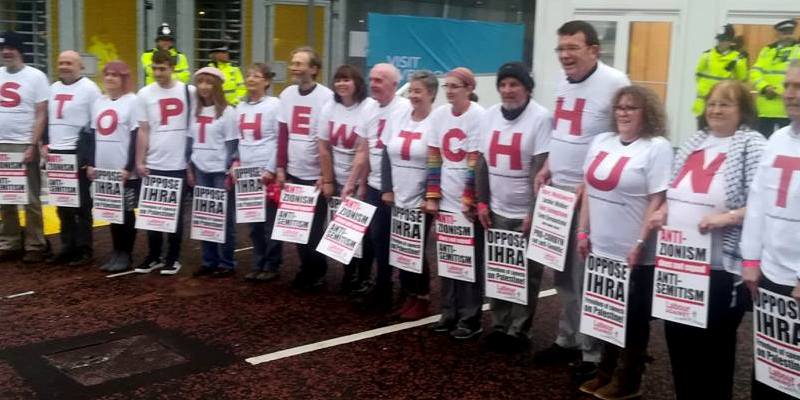

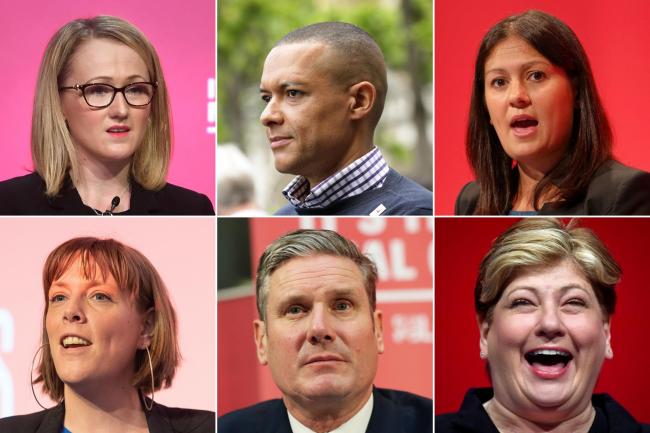
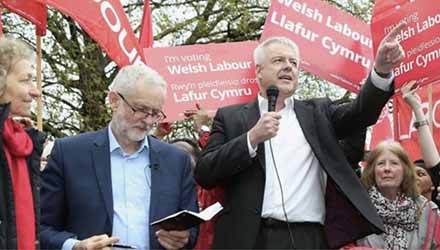
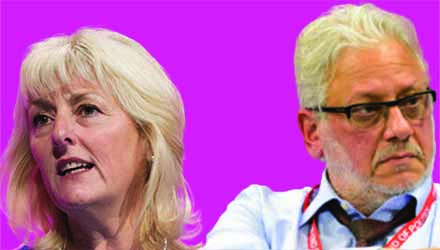
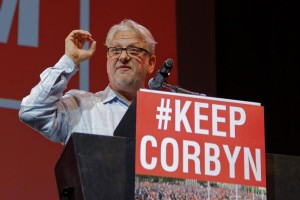 fter all, he is Mr Momentum, which has since its inception been portrayed as a dangerous hotbed for an assortment of hyperactive hippies and Trotskyist troublemakers. He has been on the ‘far left’ of the Labour Party for decades, we are told. However, over the last 14 months, Lansman certainly has been very busy moulding Momentum into a thoroughly respectable election machine.
fter all, he is Mr Momentum, which has since its inception been portrayed as a dangerous hotbed for an assortment of hyperactive hippies and Trotskyist troublemakers. He has been on the ‘far left’ of the Labour Party for decades, we are told. However, over the last 14 months, Lansman certainly has been very busy moulding Momentum into a thoroughly respectable election machine.